News and Insights
The recent news from the Rural Solutions team.
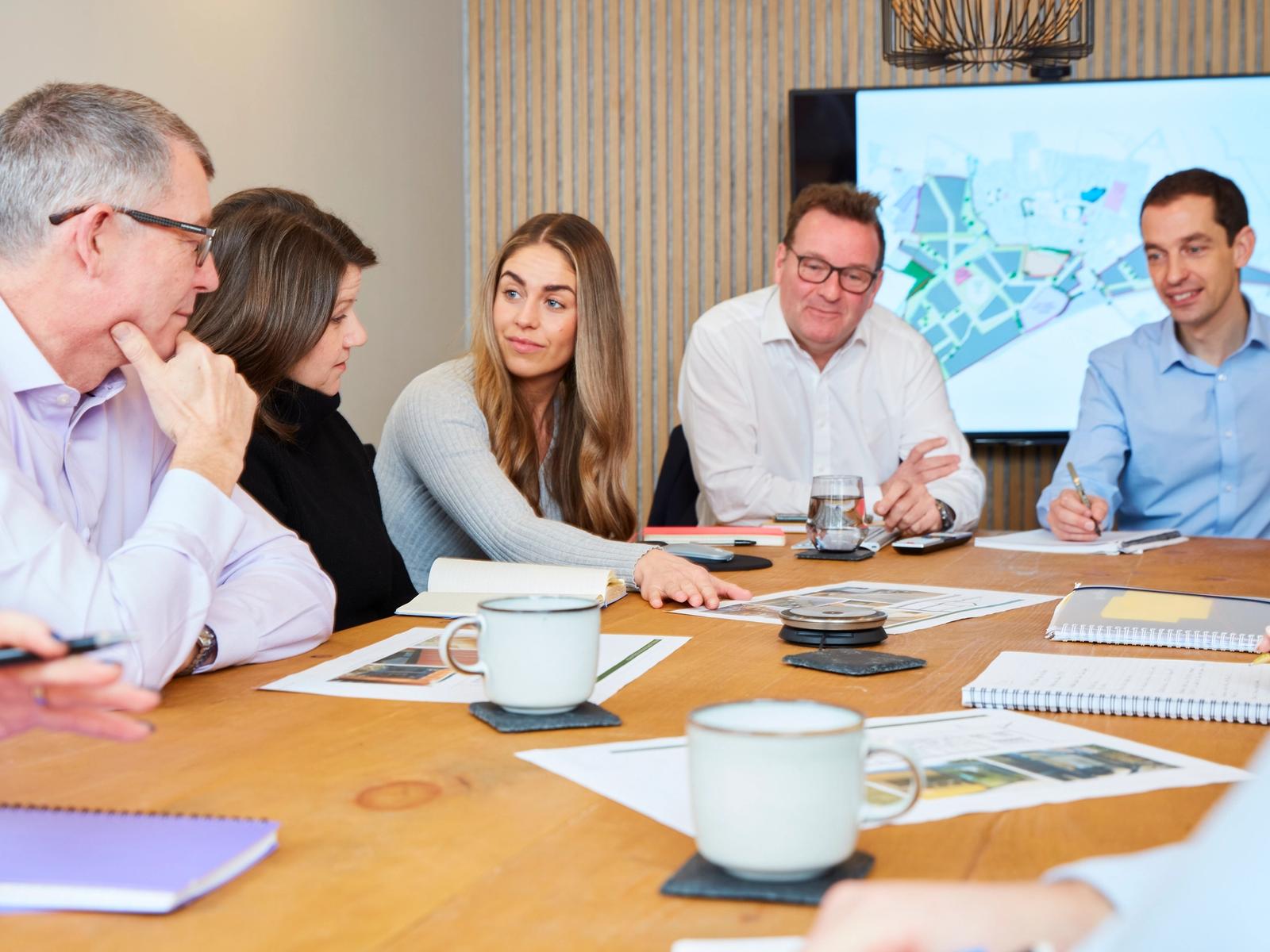
We are hiring
Looking for your next career move?
We are thrilled to announce two new opportunities to join the skilled and passionate Rural Solutions team where you will have the chance to contribute to the development and regeneration of rural Britain.
To learn more about these exciting positions and to start your application, please click below.
Benefits offered by Rural Solutions include:
Discretionary Bonus Scheme
Private Medical Insurance including Dental and Optical
Employee Assistance Programme (EAP)
Wellness Allowance
Birthday Off
Christmas Holiday Allowance
Cycle to Work Scheme
Professional Development
Flexible Working Arrangements
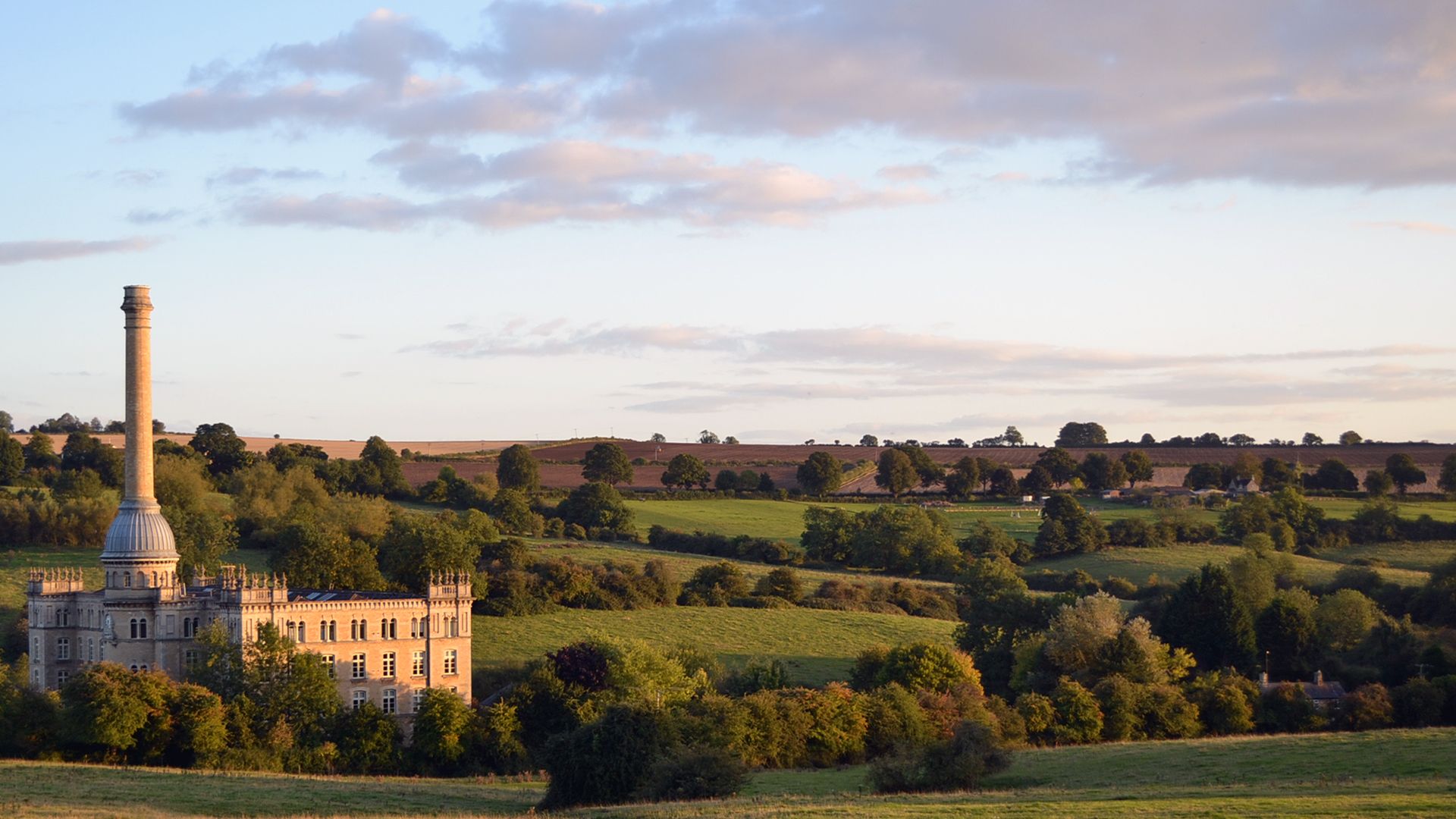
We are rural,
we take a different view
By William Fry
Spring feels like an appropriate time to focus on the change and evolution so characteristic of the countryside. On that theme, it won’t have escaped your notice that things look a bit different around here!
I am proud to reveal our new brand identity which has been refreshed and reimagined to reflect not only the business we are today, but the evolution of the rural sector as agents of change. This short video really brings it to life - take a look and let me know what you think.
Rethinking our brand has been a fascinating exercise for the whole Rural Solutions team – asking ourselves (and asking some of you) fundamental questions about who we are, what we do and critically, what we stand for. At the heart of it is our passionate belief in a thriving countryside. Our desire to be integral to the changes needed to realise that ambition is as strong as ever.
It has further embedded some things I knew about us – our tenacity, creativity, expertise, and that we are true partners with our clients.
It has cemented my conviction that at the heart of Rural Solutions lies our absolute belief in carefully considered development in the countryside being a force for good. It has highlighted some features that have evolved as Rural Solutions has grown into the unique organisation it is today. Our design capability for example, with its emphasis on creating spaces that work for people and for the places – the landscapes and communities – that host them.
Our Consultants, Architects, Landscape Architects and Planners work together daily to conceive, test, shape, design and deliver plans for remarkable spaces and enterprises which enable people and places to thrive.
For more on our business services and areas of rural expertise please have a look around the new Rural Solutions website. We’d love to know what you think!
Rural Estates:
place shapers and change makers
By Rob Hindle & Nicky Witchell
Rural estates are constantly at work: maintaining, restoring, enhancing. Managing land, property, heritage, tenants, employees, visitors and more. The people who live, work and care for them bear a great responsibility to protect the heritage and landscapes of these special places. In order to do so, estates like all enterprises must evolve and adapt to the pressures upon them as well as considering how their role can adapt for the sustainability of their local communities.
A large part of our work with estates is to help them create long-term strategies and masterplans. Balancing the numerous roles that estates play poses opportunities and challenges, in particular for those who need to rebalance their activities to ensure a sustainable long-term future. This can create opportunities to enhance their contribution to the vibrancy of local communities; an evolution of the historic role many estates have played in rural place-making.
Development proposals brought forward by estates – such as new housing or commercial developments – are inherently shaped by a shared sense of place and more often than not are focused on setting exemplary standards in terms of environmental sustainability and design quality. Such is the inter-reliance between estates and their local communities, these proposals can also respond to the provision of homes and services to meet community needs. A positive legacy is the driving force.
The influence of estates, especially in high-value landscapes such as National Parks or AONBs, means that a considerable amount of natural capital and the built heritage environment is managed by landowners and their tenants, with whom decisions around current and future land use and land management rest. Planning policy can apply limits on development but cannot be used to either direct or positively influence how landowners and managers deal with their natural, social, and economic capital outside of a development context. Policy makers increasingly acknowledge this limitation and recognise the potential offered by estates in terms of responsible, integrated land use and place-making.
A growing number of planning authorities are now adopting, or considering adopting policies which recognise the role of estates since we supported the Wiston Estate in the South Downs National Park, in the production of the first ever ‘Whole Estate Plan’ to be formally endorsed by a local planning authority.
Even where local development plans don’t overtly include a policy in relation to estate-led development, the estate-scale approach is likely to be effective, as demonstrated by our work with the Bolton Abbey and Chatsworth estates (part of the Devonshire Group) in the North Yorkshire and Peak District National Parks respectively.
At Bolton Abbey, we managed the production of a strategy and masterplan for the redevelopment of the ‘core visitor area’. Alongside this, we have made representations on the proposed inclusion of a Whole Estate Plan policy as part of the local development plan review, which will be out for consultation shortly.
At Chatsworth, we are leading the production of an ambitious, holistic whole estate plan, which seeks to share thinking around the vision, aims and objectives of the new generation of estate leadership that will inform management, investment and development decisions over a fifteen to twenty year period. A process which has established a productive dialogue between the estate and the National Park in advance of any development proposals being brought forward.
Visit our case studies to learn more about our approach to estate scale strategies.
Following on from our recent leisure and tourism event, later this year we will be holding a ‘roundtable’ on the main issues and opportunities facing rural estates. To express an interest in this event, or in our estate work more widely please drop us an email: marketing@ruralsolutions.co.uk
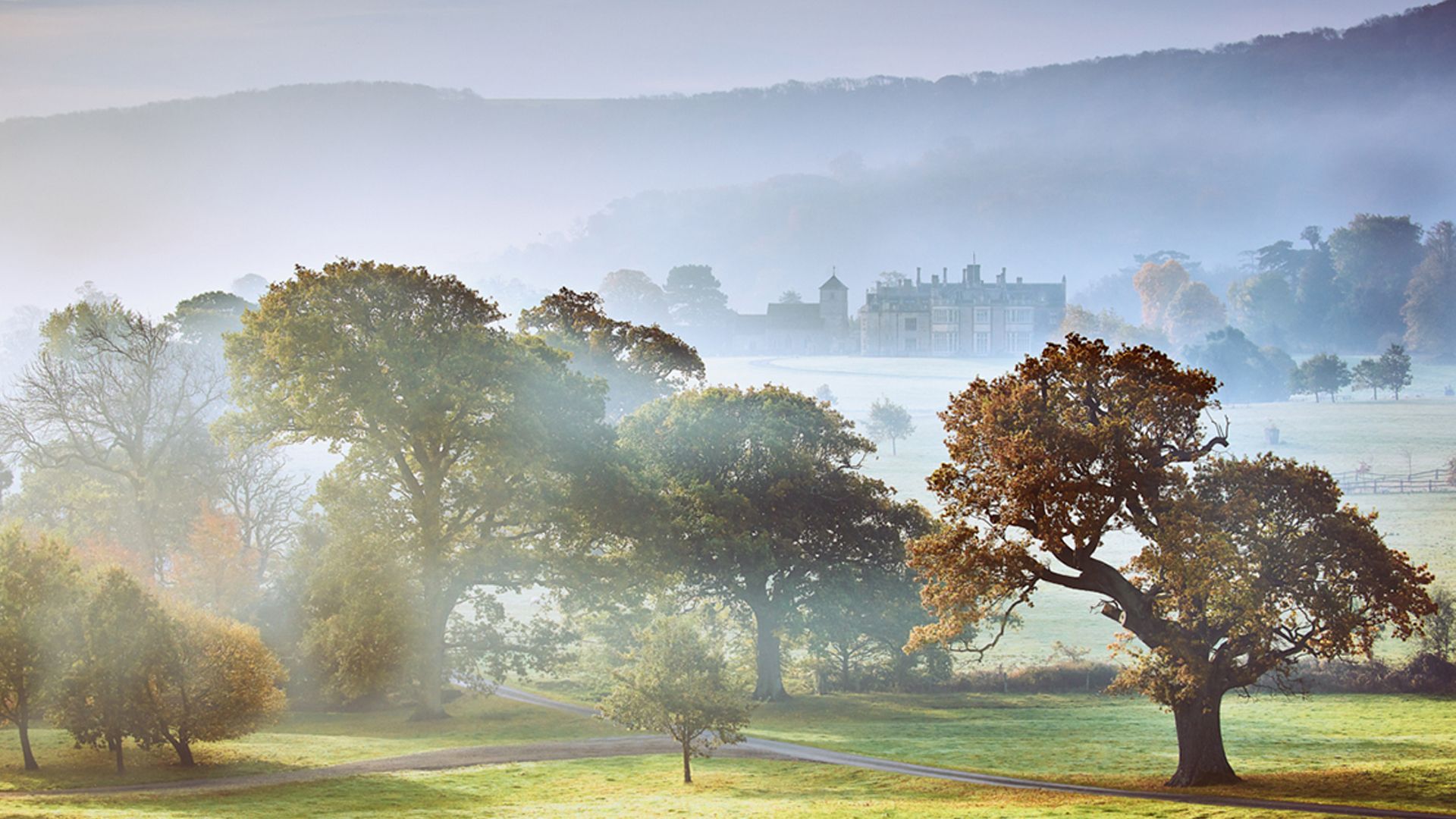
The art of the possible:
Consulting at Rural Solutions
By Sally Ormiston
No two days are the same for the Consulting team. We work on a wide variety of projects, drawing on our extensive experience to bring strategic, commercial and operational rigour to rural development projects. A team of 8, spread from Somerset to Northumberland, we cover the length and breadth of the country, working alongside our planning and design colleagues to help realise our client’s ideas and objectives.
Our work currently includes a major development masterplan for a Treasure House estate, a business plan for a charity specialising in outdoor recreation for disabled adventure seekers, estate scale strategies for private, public and charitable owners, economic benefits assessments to support planning applications for commercial and leisure schemes and developing concepts for a number of new rural leisure and tourism experiences.
We work with estates, private landowners, public, charitable, and commercial organisations to shape a range of projects to deliver a range of rural development outcomes from individual schemes to large-scale strategic plans.
- We do the research to look at market demand, we consider the cost and complexity of delivery, the income-generating potential, policy context and stakeholder influences.
- We identify and appraise the options to support decision-making to shape strategies and individual development projects.
- We bring creative and innovative thinking to shape concepts, the experience they will offer and the impacts and opportunities for people and places.
- We advise on business, financial and delivery plans to make sure good ideas become successful projects.
- We shape, produce, and communicate visions and strategies; we talk to your stakeholders to make sure they understand your aims and how you will deliver them.
- We help you to articulate the benefits a strategy or development scheme will deliver and the opportunities it will create for communities and customers.
- We offer project management services to coordinate project delivery from feasibility and concept creation through the planning and development process.
Our clients include land-owning institutions including Forestry England, Yeo Valley Organics, and Surrey County Council, new leisure experiences such as the Watatunga Wildlife Reserve and multiple estates including Castle Howard, Wiston and many more.
We often start working with our clients long before they are ready to progress development projects, and we work with them on each step of their journey. Our approach to offering Consulting advice is to work with you - our client, your wider teams and specialist advisors to help you find the right answers and approach for you and your organisation.
If you have an idea, a problem to solve, an opportunity to pursue or need some help just knowing where to start then get in touch, we would be delighted to hear from you.
Email: sally.ormiston@ruralsolutions.co.uk Tel: 01756 797501
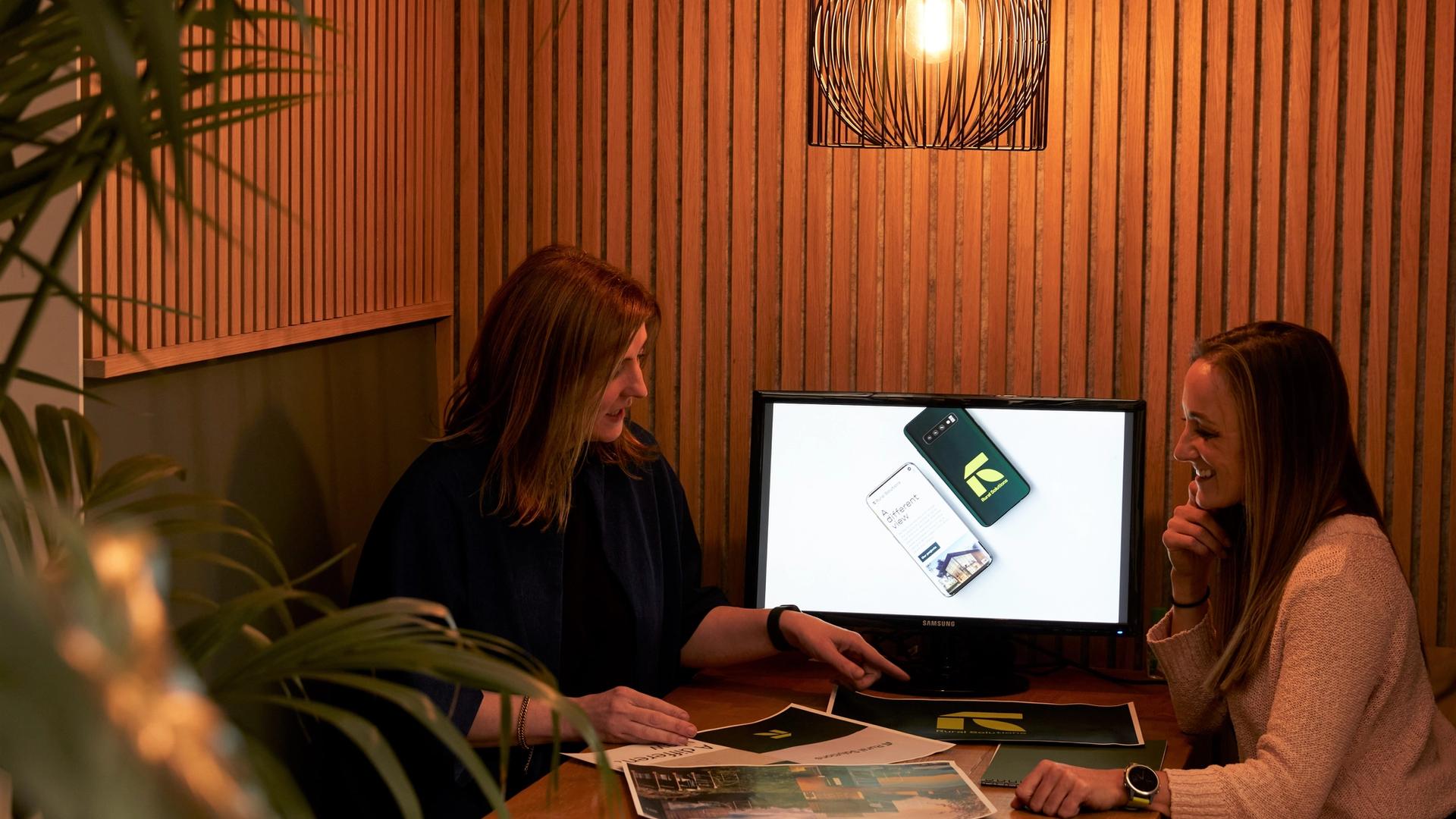
Rural Leisure:
an inside look
By Dawn Mercer
Assembling a stellar group of leisure experts in a London hotel was easy – everyone was keen on the opportunity to meet in ‘real life’ once again and to reflect on an unprecedented couple of years for the rural leisure sector. First-hand experience was in no short supply with the operators in the room representing over 500 million visitors a year, across countryside attractions, recreation, hotels, lodge parks, camping, glamping, play, food, and retail. Whilst the challenges were clear – rising costs, pressure on consumer spend, the challenge of providing truly sustainable tourism – overall there was a sense of optimism.
This stemmed largely from the resilience of demand for rural leisure experiences, and reflections that despite the economic climate, liquidity in the marketplace is at a 30-year high. Doubt around construction projects due to inflation seems to be easing, with leisure transactions in 2022 more than doubling as foreign investors and private equity funds capitalised on a favourable exchange rate. The weak pound makes the UK attractive to international tourists whose numbers are slowly returning to pre-pandemic levels and makes international travel for Brits less affordable than ever, meaning spend is likely to stay closer to home in the short-term.
Despite the obvious pressure on the consumer purse, the feeling in the room was that demand for rural leisure will remain strong, but competition for spend is high. To maintain or build market share, established brands and new entrants need to look at the overall experience they provide, alongside their core product, to stand out.
A lot has been written about ‘experiential tourism’ – and the view in the room was that it was here to stay, with consumers valuing the overall experience in the short-stay sector with accommodation becoming a destination in its own right when coupled with on-site activities and experiences. This is where rural leisure has an advantage by virtue of the landscapes and associated outdoor experiences inherent in their settings.
Pricing has continued to increase which has gone some way to ease the hike in operating costs, in particular for those offering a truly unique luxury experience. However, there was caution that for more mainstream offers, peak pricing may not be far away and in fact just this week, The Telegraph asked rather bluntly – ‘When did Glamping become such a staggering waste of money?’!
We disagree with that sentiment and see some exceptional offers in this space still emerging and commanding impressive price points, but it will be interesting to see whether glamping offers for the same price as luxury hotel rooms is something that will endure. We are most certainly not writing glamping off as demand remains high and we are working on a number of exciting new offers from bespoke treehouses to landscape resort concepts.
After a couple of hours of healthy debate, the resounding consensus around the room was that landowners who do their homework, design the right product, in the right place, for the right people, will prosper.
Take a look at some of our rural leisure projects, and for a conversation about how we can help you to create or expand a visitor enterprise please get in touch: dawn.mercer@ruralsolutions.co.uk
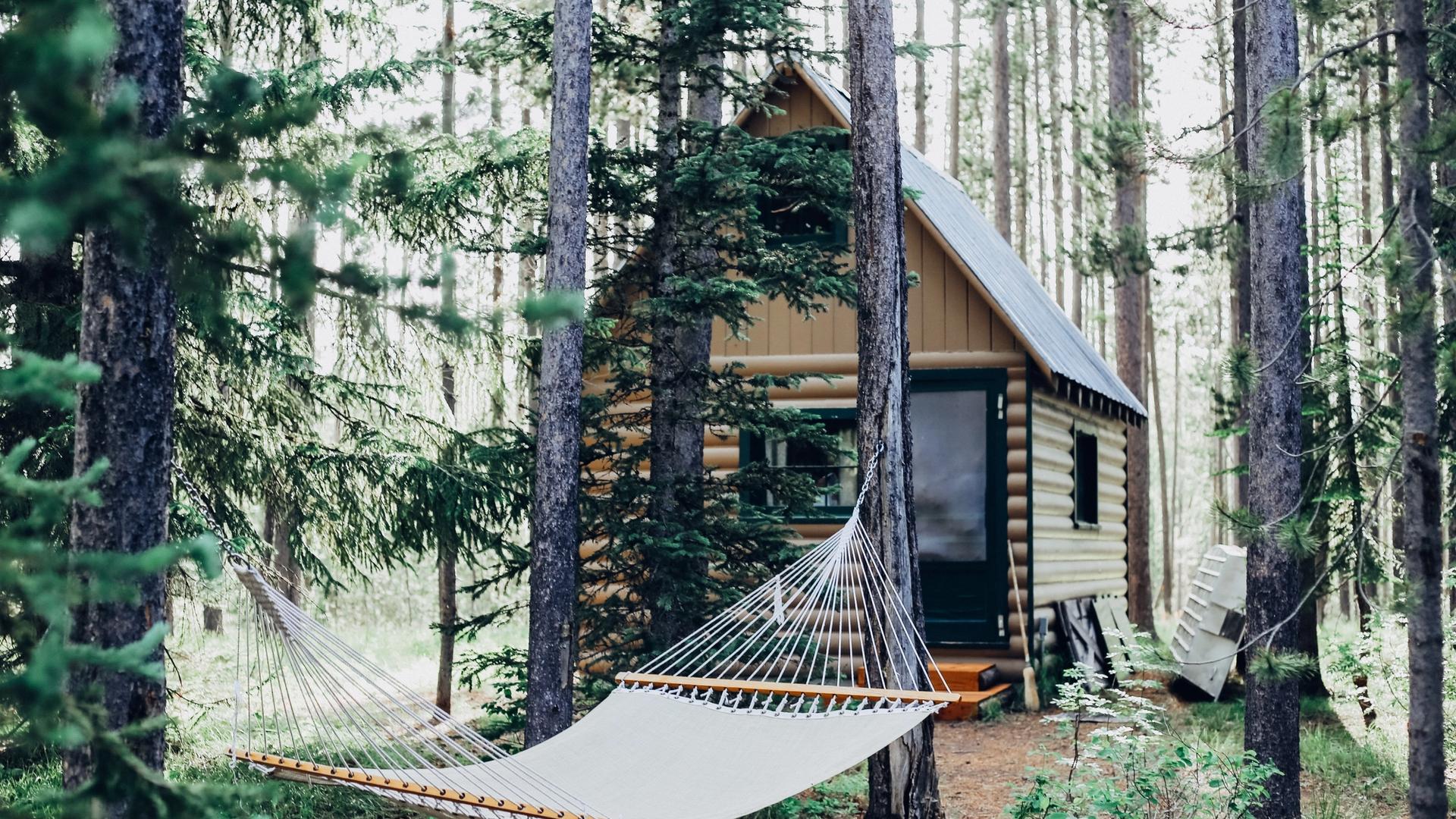
Sustainable Design:
no longer just 'a nice to have'
By Sally Ormiston
Our PassivsHaus accredited Head of Architecture, Malcolm Birks, recently attended the FutureBuild exhibition. He commented that ‘there is so much progress in this space, it's exciting to see the potential for the built environment to contribute to the net-zero goal and to have the opportunity to bring these new technologies and construction practices to life across our design work for new homes, commercial and leisure buildings in rural locations’.
One of our current projects is a great example of this, with the design informed by the wish to create spacious family living which makes the most of a sloping site and open views across open countryside.
A stunning replacement dwelling is proposed in a challenging but beautiful AONB setting.
The design references the material palette of the local vernacular including natural Yorkstone and a sandstone flag roof complemented by timber cladding, horizontal timber louvres and a green, flat roof with local seeds creating a bespoke roof flora. As well as creating a fabulous living space integrated with the landscape, the home will offer eco-living with high levels of insulation and air tightness plus a ground source heat pump, rainwater harvesting and use of local, reclaimed materials contributing to the sustainable attributes of this replacement house.
This has been a complex project, with the challenges of a sloping site, tree preservation orders, a neighbouring Grade II Listed property and two historical planning refusals and an appeal dismissed. The client came to Rural Solutions after a lengthy, disappointing process to overcome these challenges and deliver a low-energy, beautifully designed, contemporary family home.
To discuss your ideas for a sustainable new home, or any other design requirement for a rural development scheme, please get in touch at info@ruralsolutions.co.uk and check out our rural projects for more examples of our work.
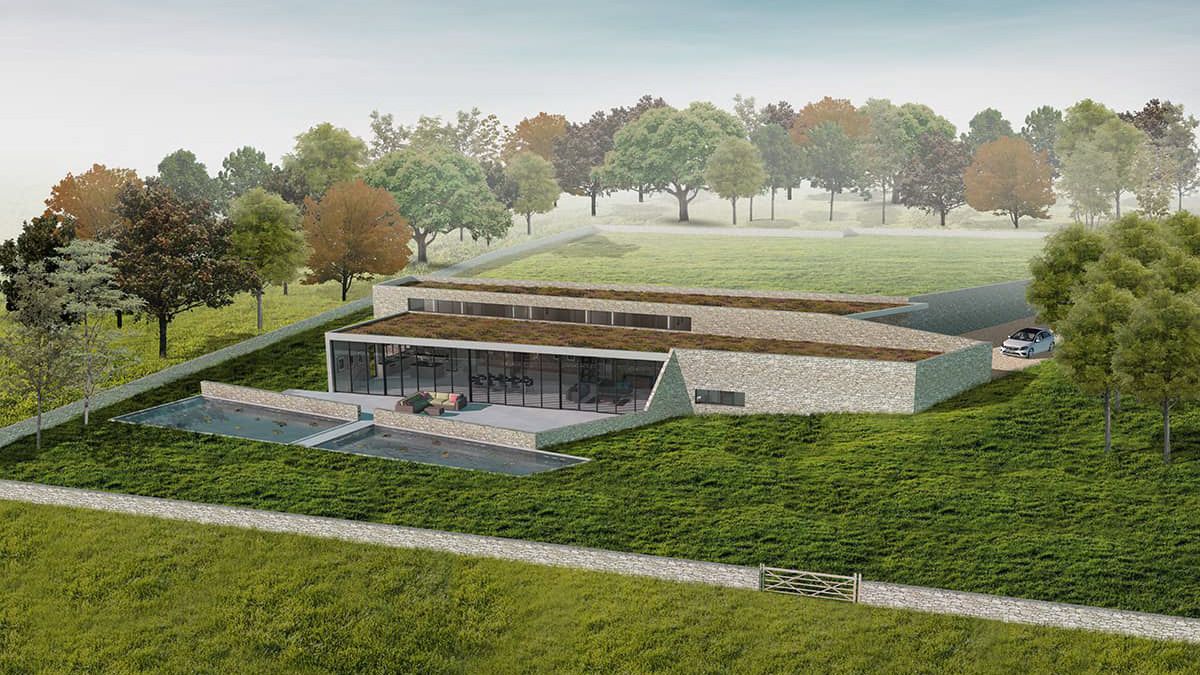
We are using cookies to give you the best experience on our website. You can find out more about which cookies we are using on our cookie policy.
